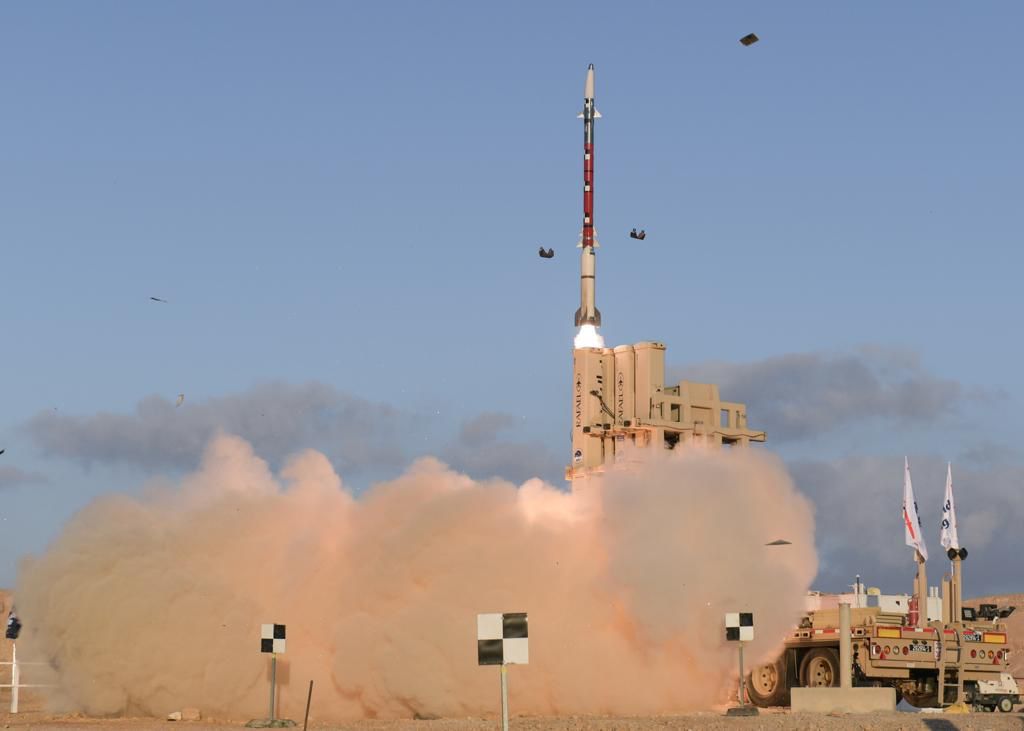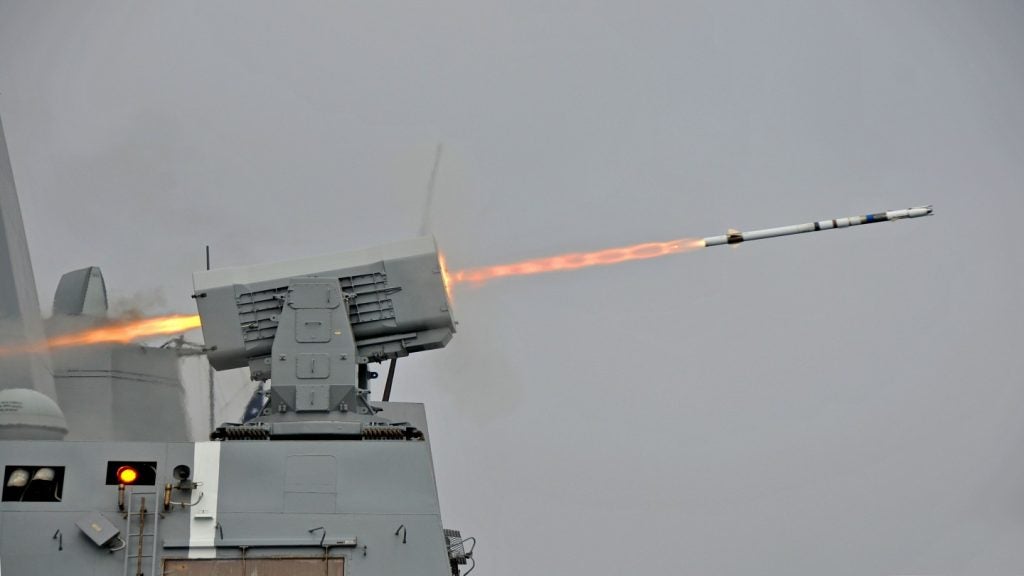
Israel’s defence budget, which includes aid from the United States, has experienced significant growth during the historical period.
The budget has increased from $19.3bn in 2019 to $23.6bn in 2023, representing a compound annual growth rate (CAGR) of 5.2%.
Israel’s thriving defence market presents an immense opportunity for defence companies, with the missiles and missile defence systems market predicted to be worth $7.5bn between 2023 and 2028. Additionally, Israel’s land and fixed-wing aircraft sectors are also expected to receive billions of dollars in investments during this period.
Meanwhile, its naval capabilities are similarly being enhanced with the introduction of Sa’ar-6 corvettes and advanced missile systems like the Barak-8, which is being co-developed in an innovative partnership between Israel Aerospace Industries and India’s DRDO.
Israel, being the third largest defence market in the Middle East, following Saudi Arabia and the UAE, presents a highly profitable opportunity for defence companies. According to GlobalData’s ‘Israel Defense Market 2023-2028’ report, the most attractive industries in Israel’s defence sector are missiles and missile defence systems, military fixed-wing, and military land vehicles.
Further to GlobalData, the missiles and missile defence systems sector has emerged as the leading segment in the Israeli defence market. This includes the collaboration between Israel and the US on a range of Arrow missile defence systems, as well as the David’s Sling missile defence system, and the Iron Dome missile defence system. This market is projected to amass a total worth of $7.5bn between 2023 and 2028, with the platform-based missile defence systems sub-sector is projected to be the largest in the industry, with a value of $857.4m over the same period.
How well do you really know your competitors?
Access the most comprehensive Company Profiles on the market, powered by GlobalData. Save hours of research. Gain competitive edge.

Thank you!
Your download email will arrive shortly
Not ready to buy yet? Download a free sample
We are confident about the unique quality of our Company Profiles. However, we want you to make the most beneficial decision for your business, so we offer a free sample that you can download by submitting the below form
By GlobalDataConventional land-attack missiles segment is expected to experience significant growth in the coming years, with projections for an increase from $262m to $332.8m by 2028. The contribution will be fuelled in part by investments in anti-tank guide missiles, representing $308.8m of expenditure across 2023-2028 and anti-air missiles representing $119.7m of expenditure across the same period.
Israel is currently undergoing the induction of approximately 39 F-35 multirole combat aircraft, with 36 of them having already been received. Israel reportedly plans to procure an extra multirole fighter, and is said to be weighing the option of acquiring the F-15EX Super Eagle instead of another F-35. According to recent reports, it is highly probable that Israel will procure another batch of the F-35I Adir, which is the customised version of the F-35A Lightning II aircraft.
The military fixed-wing aircraft sector has emerged as the second-largest sector in the Israeli defence market. A $5.6bn investment is expected over the period of 2023-2028, with the multirole aircraft segment being the primary driver of the market, contributing a total of $4.5m between 2023 and 2028.
The multirole aircraft segment is also expected to be the primary contributor to the expansion of the military fixed-wing aircraft industry in Israel. It is projected to increase from $667.4m in 2023 to $788.4m in 2028, with a compound annual growth rate (CAGR) of 3.4%.
With a cumulative investment of $1.8bn over the next six years, the military land vehicles sector has secured its position as the third largest sector in the Israeli defence market. The armoured personnel carrier segment is expected to sustain the majority of the military land vehicles market, with a projected investment of $1.3m over the forecast period. With a combined investment of $495.1m, the infantry fighting vehicles and tactical trucks are anticipated to play a significant role in the expansion of the sector.
Israel’s surface fleet is set to receive a significant boost with the addition of Sa’ar-6 corvettes and advanced missile systems. This move is expected to enhance the country’s naval capabilities and strengthen its defence posture. The Israeli navy is currently in the midst of introducing four brand new Sa’ar-6 corvettes into their fleet. The Israeli navy’s Sa’ar corvettes, which are derived from the German Braunschweig-class corvette, have undergone significant modifications to meet the specific needs of Israel.
The Israeli Sa’ar-6 vessels are currently undergoing integration with the Barak-8 Medium Range Surface to Air Missile (MRSAM) system. This system is being co-developed by Israel Aerospace Industries (IAI) and India’s Defence Research and Development Organisation (DRDO). The Barak-8 system is anticipated to improve the Israeli navy’s ability to safeguard its key assets from potential cruise missile assaults.
Israel is reportedly developing a new version of its Gabriel anti-ship cruise missile (ASCM) as for use in a densely populated littoral environment. The recently unveiled Gabriel V cruise missile system boasts state-of-the-art active multi-spectra seekers and has been designed to function effectively in a littoral setting.







